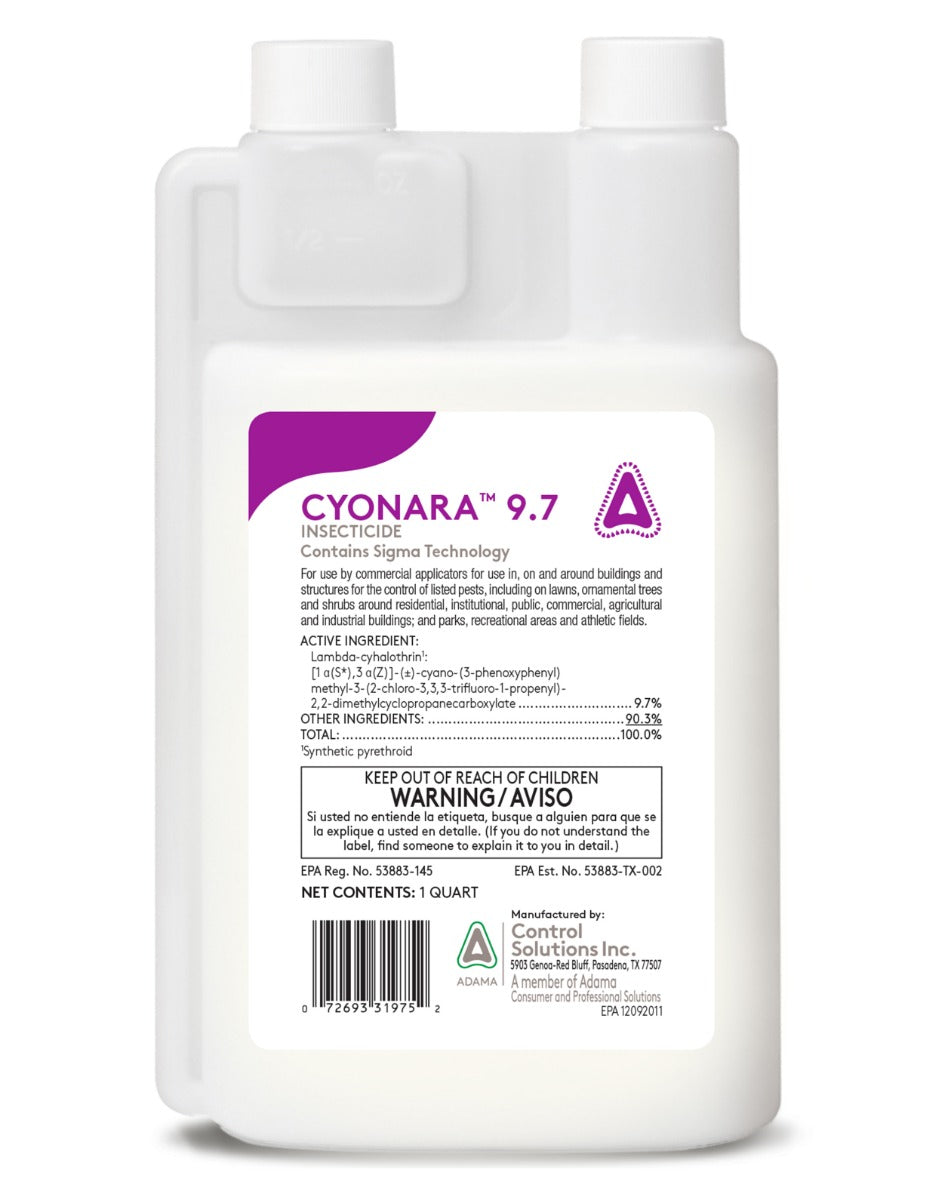Description
- Description
- Features and Benefits
- Specs
- Labels and SDS Forms
Cyonara 9.7 is a broad-spectrum, long-lasting insecticide formulated with 9.7% lambda-cyhalothrin, the same active ingredient as Demand CS but at a more cost-effective price. Engineered with Sigma Technology, this powerful perimeter and surface spray provides residual control for weeks, effectively eliminating ants, cockroaches, mosquitoes, fleas, ticks, termites (above ground), carpenter bees, and more. Safe for residential, commercial, industrial, and food-handling areas (non-food zones only), Cyonara 9.7 dries clear with no visible residue. Ideal for lawns, ornamentals, livestock and poultry housing, and structural pest control, this versatile insecticide can be tank-mixed with other pesticides or insect growth regulators for enhanced pest management.
- Contains 9.7% lambda-cyhalothrin for powerful insect control
- Eliminates ants, fleas, ticks, mosquitoes, termites, and over 50 other pests
- Dries clear—no visible residue on dark surfaces
- Provides extended residual control for weeks after application
- Approved for use in residential, commercial, industrial, and food-handling areas (non-food zones)
- Effective in lawns, ornamentals, athletic fields, poultry and livestock housing
- Can be tank-mixed with other insecticides and growth regulators
| ACTIVE INGREDIENT | lambda-Cyhalothrin 9.7% |
| TARGET PESTS | Ants, Bedbugs (adult), Boxelder Bugs, Carpenter Bees, Carpet Beetles, Centipedes, Clover Mites, Cockroaches, Crickets, Earwigs, Fleas, Flies, Millipedes, Mosquitoes, Rice Weevils, Silverfish, Spiders, Stink Bugs, Termites (above ground only), Ticks, Wasps |
| FOR USE IN | Commercial & Residential Indoors & Outdoors: Apartments, Warehouses, Schools, Hospitals, Restaurants, Hotels, Kennels, Agricultural areas, Lawns, Turf-grass, Landscape Ornamental Plants and others * See label for complete list |
| APPLICATION | 0.2 - 0.8 oz. per gallon of water * See label for complete application instructions |
| UPC | 072693319752 |
| MANUFACTURER | Control Solutions |
| EPA REGISTRATION | 53883-145 |
| NOT FOR SALE TO | AK, HI, SD CT, NY, VT (Restricted To Licensed Applicators Only) |
| COMPARABLE PRODUCTS | Demand CS, Equil Lambda 9.7 CS |
Payment & Security
Your payment information is processed securely. We do not store credit card details nor have access to your credit card information.


